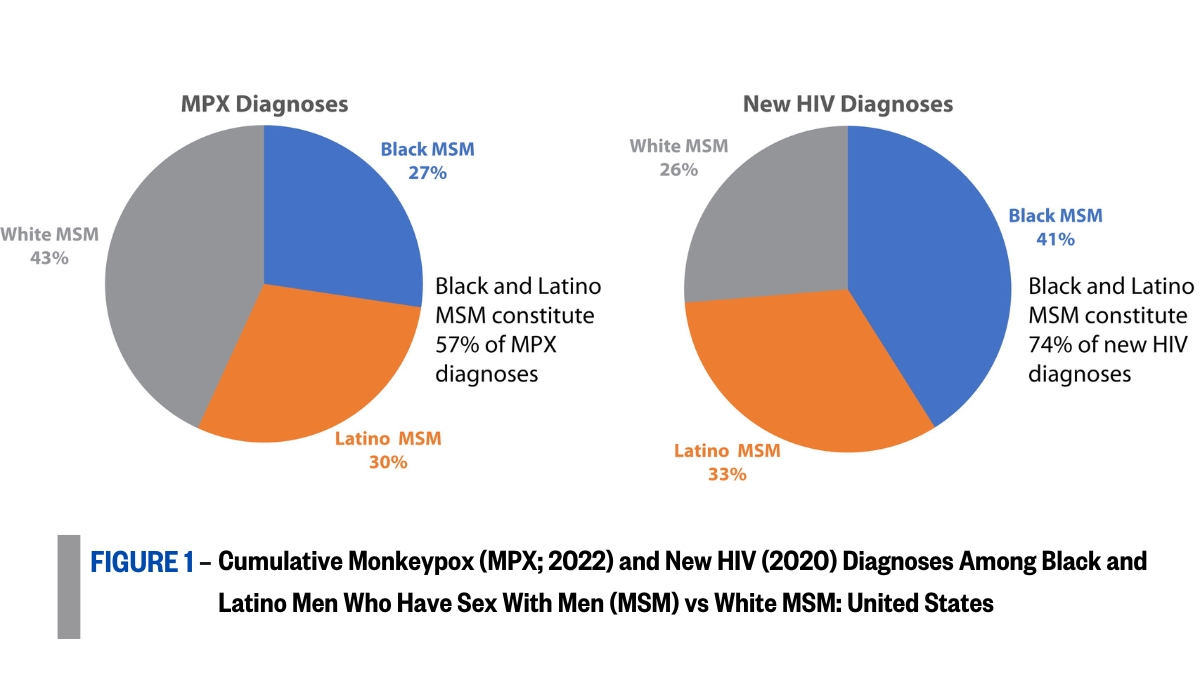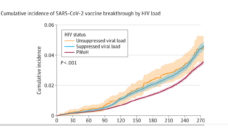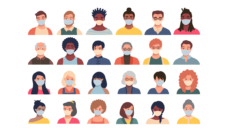Almost three years after the COVID-19 pandemic began, the U.S. Department of Health and Human Services declared the current Mpox outbreak a public health emergency. There have been nearly 29,000 confirmed cases in the U.S. since May 2022.
Mpox (formerly known as monkeypox) is a viral disease that presents with flu-like symptoms and a rash that can spread via skin-to-skin contact. It is not a sexually transmitted infection and is rarely lethal. The Mpox outbreak in the U.S. has primarily affected men who have sex with men (MSM) and has brought up painful memories of stigma and discrimination during the early days of the HIV epidemic.
Carlos Rodrigues and fellow researchers compiled CDC data to assess the public health response to monkeypox in the U.S. The figure above compares monkeypox diagnoses in 2022 to HIV diagnoses in 2020 by racial group.
This preliminary data confirms that most Mpox cases have been reported among Black and Latino MSM at 27% and 30%, respectively. Up to 80% of MSM of color with confirmed Mpox were also HIV positive. The Mpox symptoms are more severe in those co-infected with HIV. The researchers suggest prioritizing Black and Latino MSM, transgender people, sex workers, and people who use drugs in Mpox prevention efforts.
Reported cases of Mpox in the U.S. are decreasing. Now, six months after the outbreak’s first cases, attention to the virus has declined as well, and experts fear that infections will now go unreported and undetected. Mpox can be prevented with a vaccine, and antiviral treatments can help manage symptoms. Getting vaccines and treatment to communities of color where Mpox is endemic can help avoid or control future surges of the virus.
Databyte via Carlos E. Rodriguez-Diaz, Jeffrey S. Crowley, Yaiomy Santiago-Rivera, and Gregorio A. Millett, From COVID-19 to Mpox: Unlearned Lessons for Black, Latino, and Other Men With HIV Who Have Sex With Men. American Journal of Public Health, 2022.














